CIA Board Games
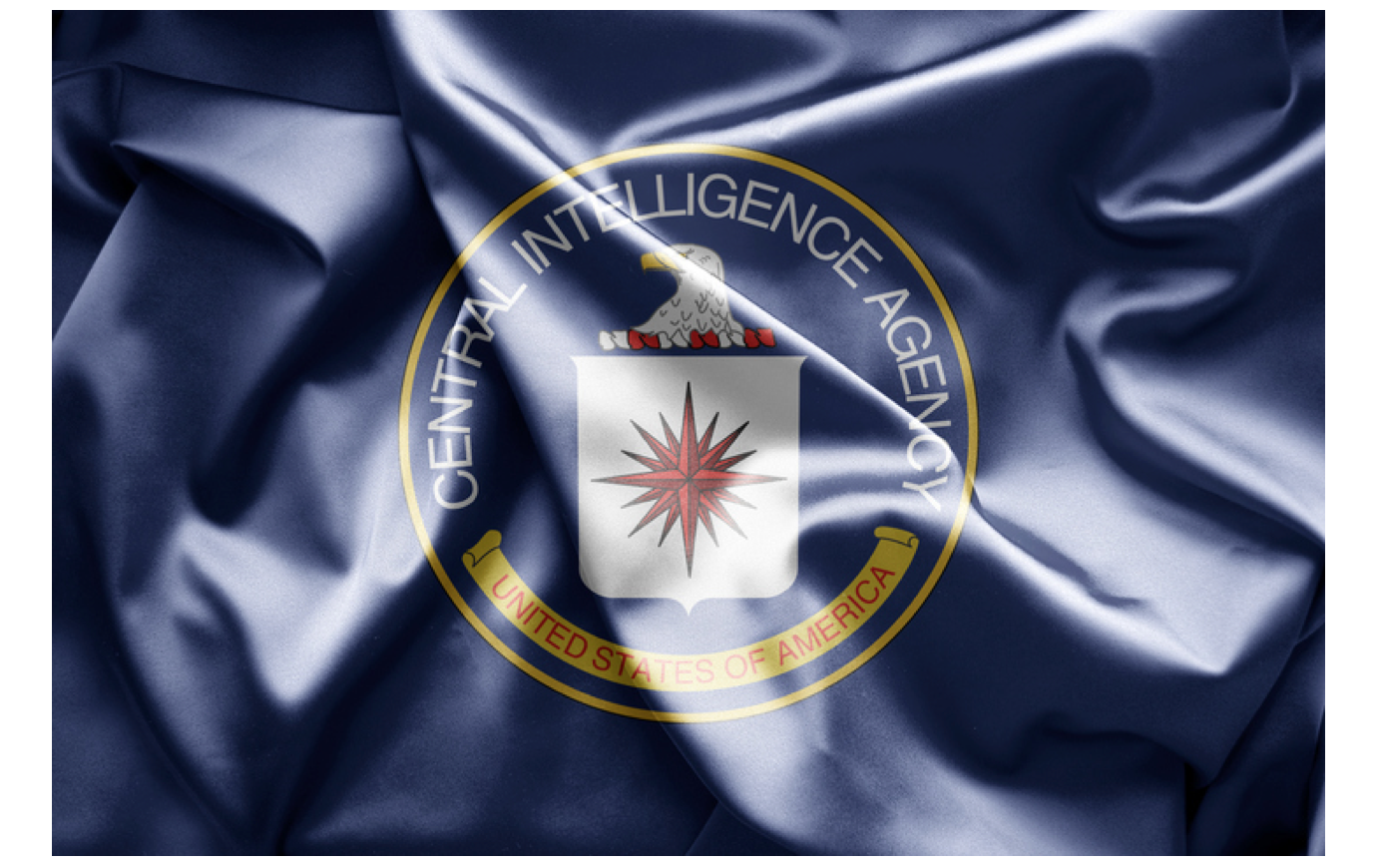
We all loved board games in childhood. This is an excellent tool for developing socialization and logical thinking skills. But then we grew older and grew up, most of us "matured" and began to scornfully treat nastolkami. Some switched to "adult" board games, such as Magic The Gathering. But it turns out that even such a serious CIA organization does not neglect board games. In this forge of spies of our most probable world partner, special games were developed for training agents. Maybe most of us have time to reconsider their attitude to the desktop? Under the cut, the story of Sam Mashkovich about the wondrous world of board games played by agents of Western intelligence agencies. I came across this story quite by accident. Sin was not translate. The original is available here . I hope after the publication of this note, I will not have problems beyond the borders of our Motherland.
David Klopper, one of the CIA analysts, demonstrates training materials developed by his department in the conference hall of the hotel. Next to it are 10-sided cubes, over 100 multi-colored chips and packs of cards, which describe all sorts of military-political crises. And at the other end of the room on the table are scattered cards that have just been used to track and capture drug lord El Chapo .
From Venezuela again some trouble!
In the hall is testing the strangest learning tools from the CIA ever made public: board games. They can not be bought in the store. They are designed and manufactured in the bowels of the Department, and reflect the realities of the daily operations of the special services.
')
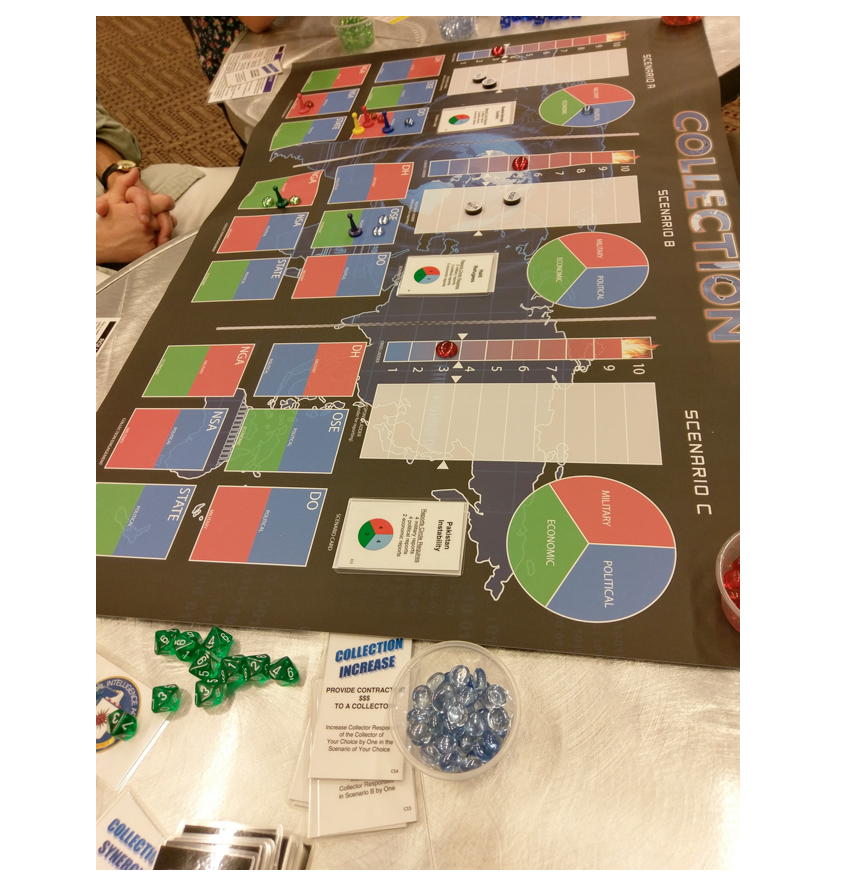
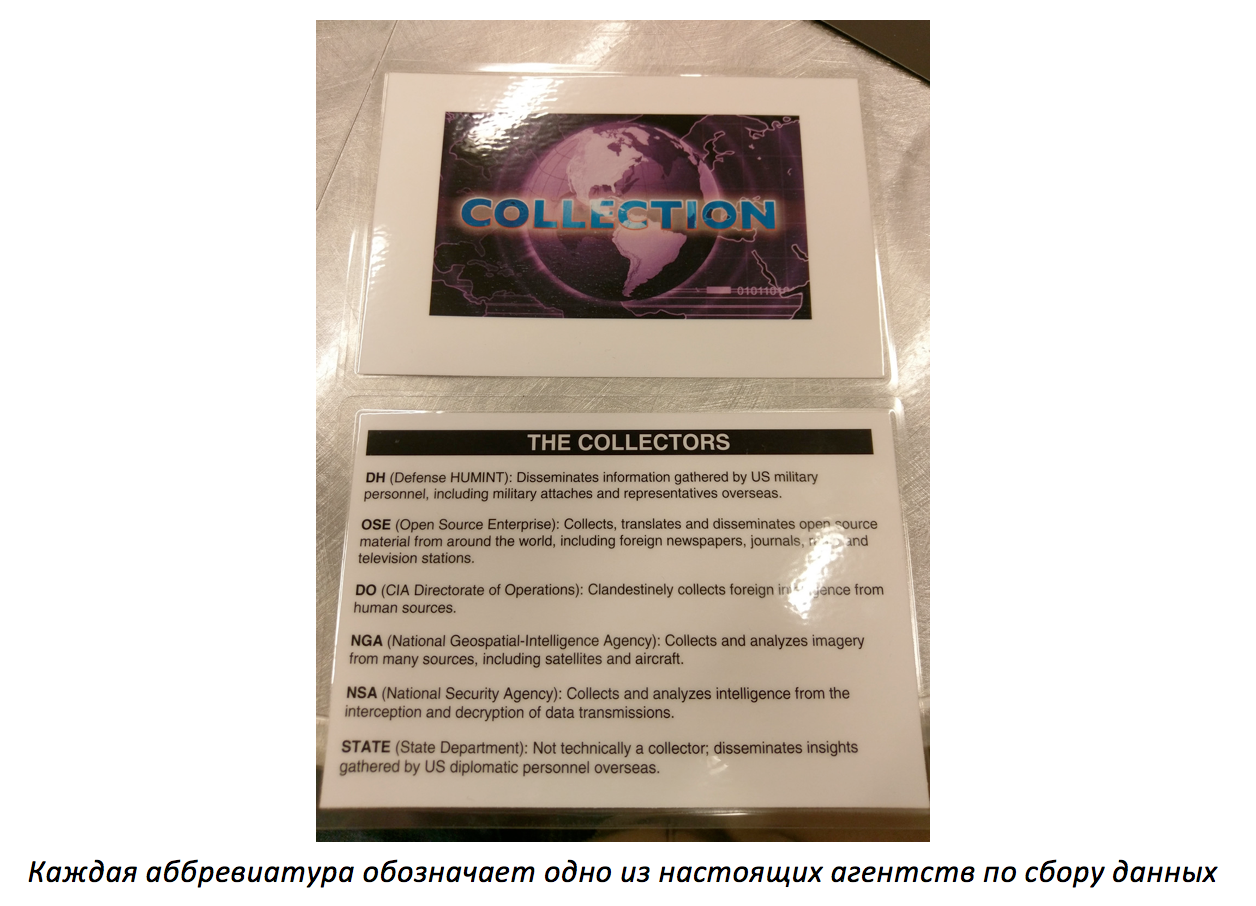
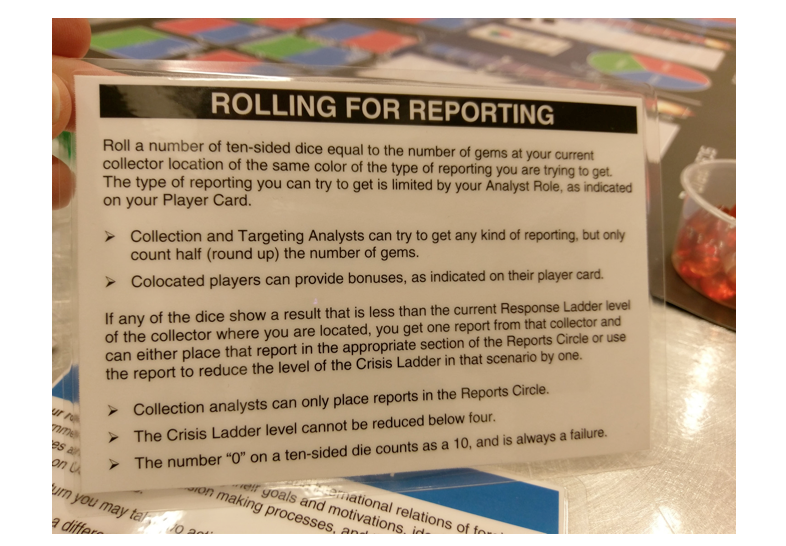
Unfortunately, it was not possible to take a photograph of the card, which explains the role of the game. But this card explains how the result of the abandoned die affects the data collection for a specific operation.
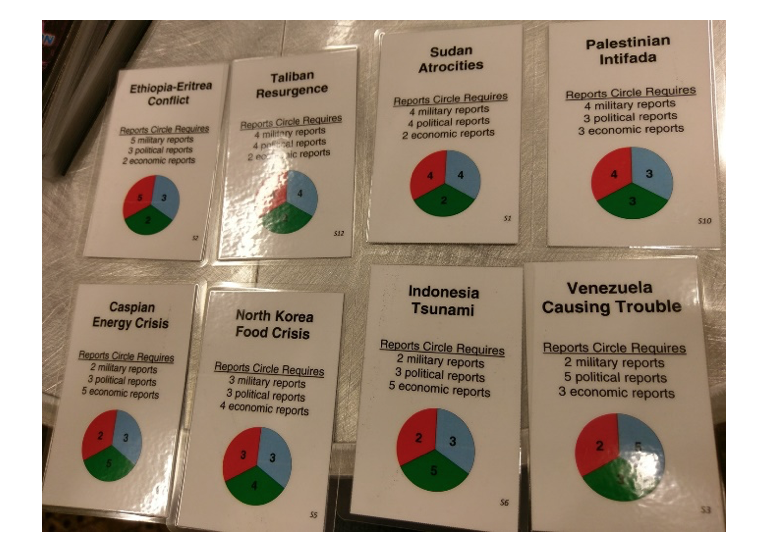
Some of the operations that may fall to you during the game. One of the favorite - "Venezuela creates trouble."
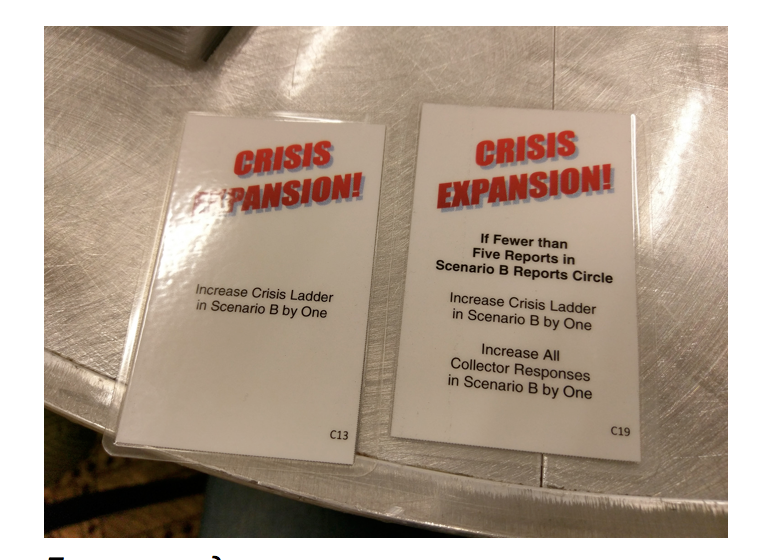
Almost every “expansion crisis” card leads to the appearance of three critical zones on the field. But they can also force agencies to step up their efforts. Like in real life: when shit hits the fan, special services begin to run more actively and solve problems without delay.

It would be desirable that such cards come across as much as possible - in the game they are talking about what results on the cubes will lead to successful data collection.
Klopper recalls how in 2008 his boss’s boss called him to a meeting and asked him to develop new practical exercises. Usually, such exercises were used to test how agents learned from recent lectures and seminars, and looked something like this: “teams, gather at boards and hold briefings”. Incredibly boring. The boss told Clopper that he worked for the CIA long enough to figure out how to make the exercises more interesting. He was inspired and said: “I am a gamer. I like video games and desktops. Can we bring the game into the learning process? ”
At the South by Southwest festival, Klopper presented three board games designed for practical training of CIA agents. They have been developed for 4 years. One of them, described above, has the laconic name “Collection”. This game is more interesting than the popular Pandemic team game. Here a group of participants must work together to resolve three major crises around the world. Each participant plays for a CIA agent with certain capabilities, and the main task is to gather enough intelligence. If one of the three crises breaks out, the team loses. In each game there must be at least three roles of “political analyst”, “military analyst” and “economic analyst”. They must collect information in their own fields, and additional players (up to seven people in a team) have their own specializations.
During the course each player can do a little. Intrigue adds a high rate of development of crises. Players can perform one of the following actions: move their agent, establish new connections in a new place, or try to gather intelligence. At the end of the turn, the die rolls. Points that are scored allow you to establish more connections in a specific zone either by moving additional agents there (if they have a corresponding bonus), or by means of a bonus card, and also on the condition of good relations with a specific agency.
But all these improvements and bonuses are rare, therefore it is difficult to play. As Klopper says: “The game allows you to understand the value of cooperation. We observed how, during the game, the agents began to negotiate, discuss each other's possibilities, mutual benefits, and thought through a strategy. That is, they tried to win. And in those gaming sessions, where the participants were engaged in their own business and did not begin to cooperate before it was too late, it was not possible to resolve the crises. This is a simulation of everyday intelligence activities, allowing you to teach the most important skill - teamwork. ”
Magic: The Gathering
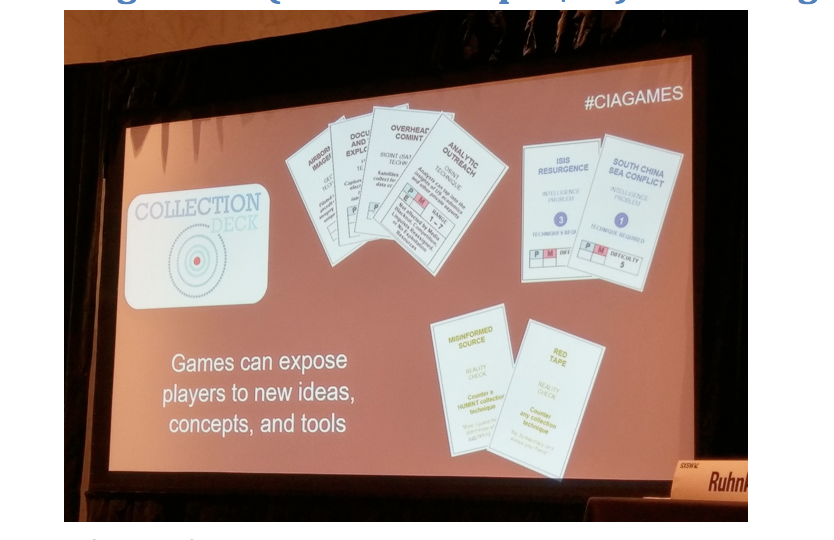
One of the other Klopper games.
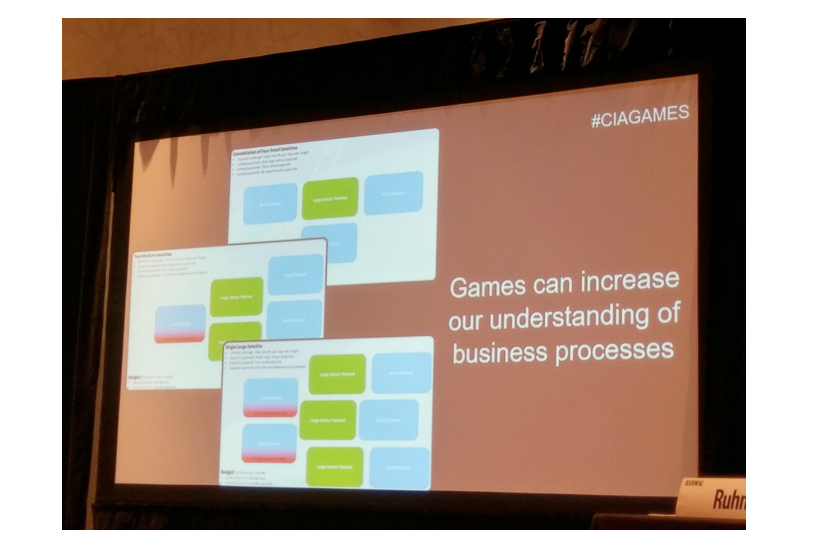
An unfinished game about creating and managing a satellite constellation. Team is better to use fewer satellites, but to make them more powerful? Use more satellites to compensate for failures? Each path has its own difficulties.
Another Klopper game is called “Collection Deck”. It focuses not on joint work, but on intelligence gathering activities. It shares "secret and non-secret information." According to Klopper, the principle is similar to “Magic: The Gathering”. Players try to achieve their intelligence objectives (represented by cards on the table), simultaneously solving emerging problems (represented by “test in practice” cards that can be used against each other). For example, you can use a card denoting a reconnaissance satellite to shoot an object. And another player can interrupt her with a “ground tracking station failure” card.
The game is designed to introduce the conditions and methods of collecting intelligence, as well as to feel how unforeseen situations can interfere. According to Klopper, agents already approached him and said that this game helped them to make the right decisions in real operations.
The unfinished game carries the working title “Satellite Construction Kit”. In it, players must collaborate to manage the resources, budget, and time needed to create and maintain a satellite constellation. By managing costs and creating reserves, players learn to cope with difficulties such as the emergence of new requirements from the Ministry of Defense, or Congress’s budget cut by 10%.
Unfortunately, it was not possible to play “Kingpin: The Hunt for El Chapo” - a game dedicated to finding and apprehending the drug lord El Chapo.
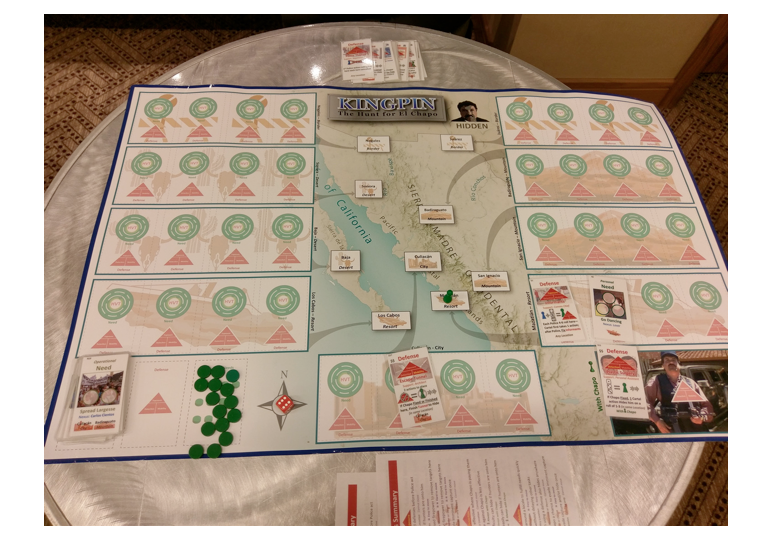
The game “Kingpin: The Hunt for El Chapo” - hunting for El Chapo.
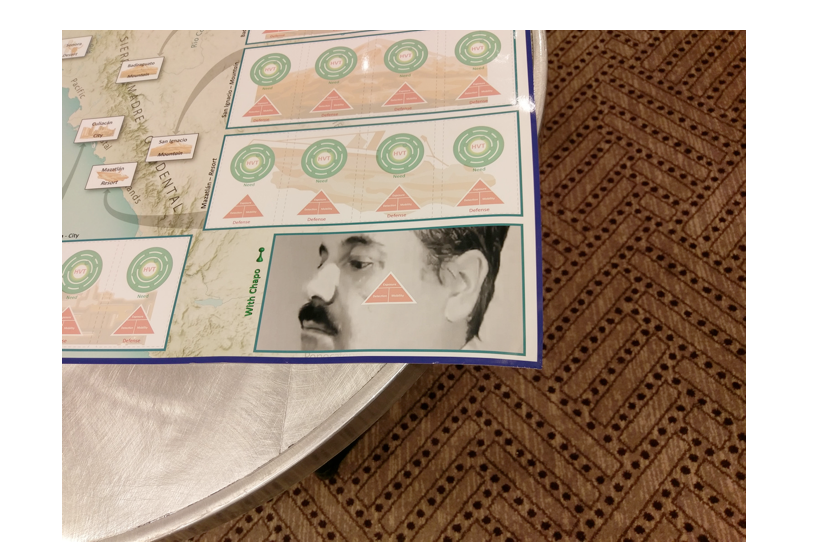
Surgical facial reconstruction.
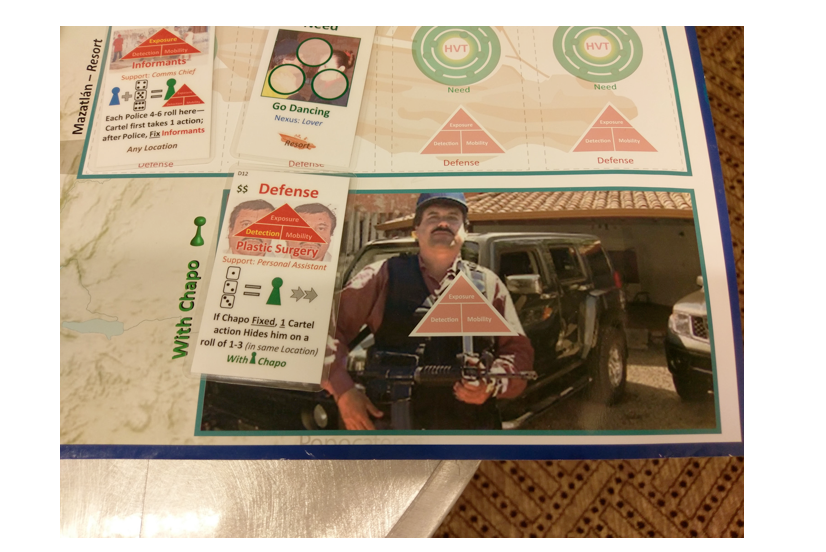
CIA officials refused to answer how this El Chapo picture was taken.
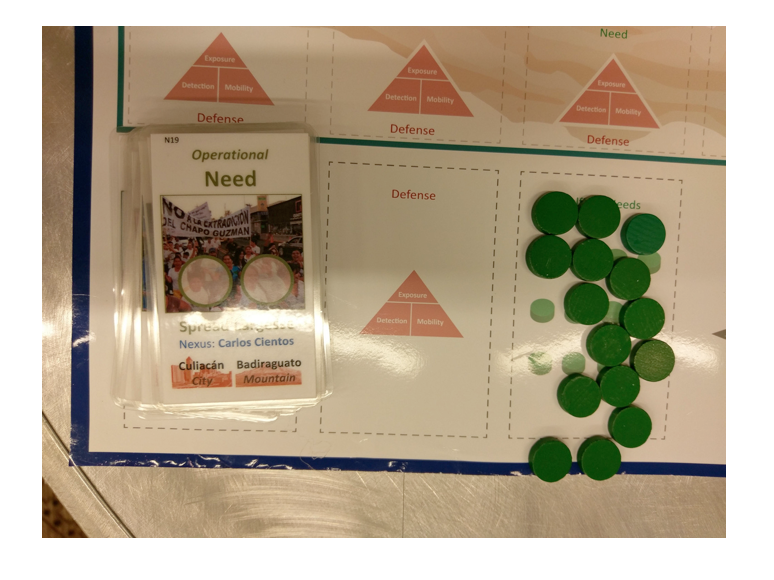
The game was developed in conjunction with the US Department of Defense Intelligence Agency. Her goal: “train analysts who can work with law enforcement agencies and partners around the world to find and capture the most dangerous criminals.
In the game, two teams play against each other. After all, analysts also need to understand how their opponents work. According to the authors, this is a battle of intellects. Criminals analyze, but they also analyze the actions of security forces.
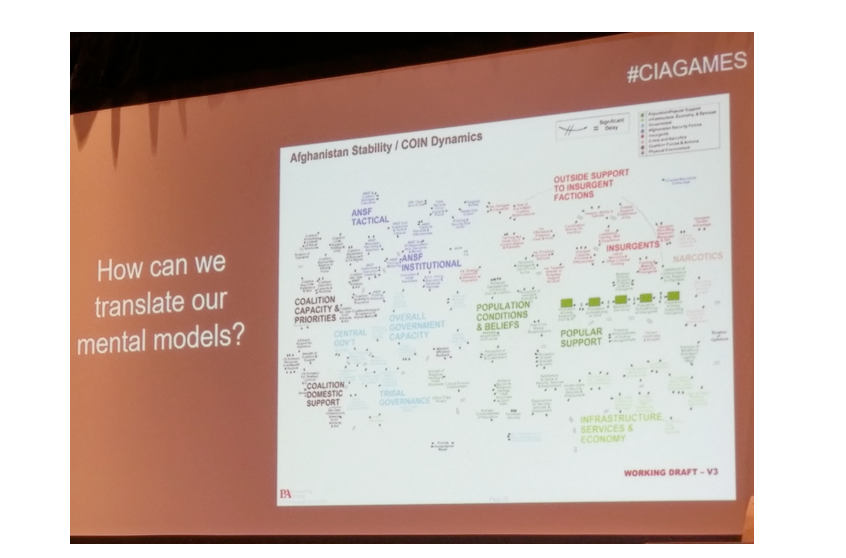
According to the CIA, these data models are best represented in the form of board games.
As conceived by the creators, such board games are very useful in terms of acquiring orientation skills in difficult real-world situations. For example, in Afghanistan, a surgical change in appearance with subsequent reconstruction is used. Thanks to the bonkers type game mechanics, employees can clearly see how their decisions affect the situation. In the course of the games, not only useful schemes are developed in the future, but past experience is reinterpreted, possibly negative.
Source: https://habr.com/ru/post/326666/
All Articles